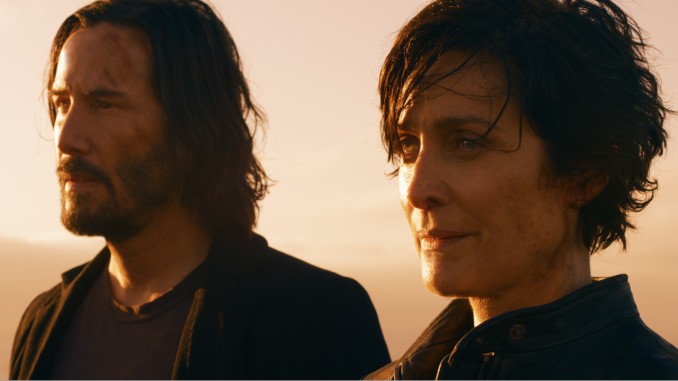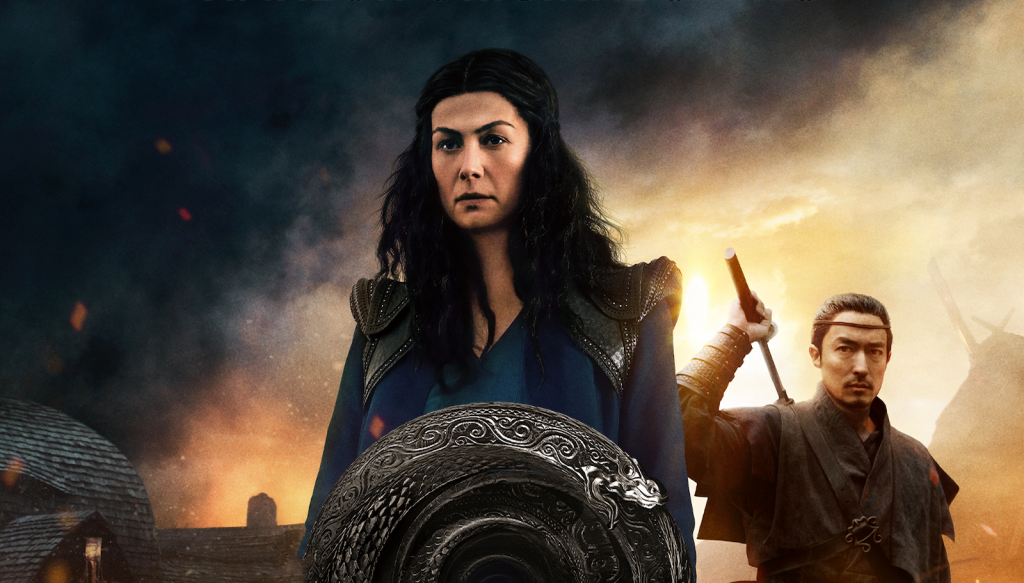Between The Matrix Resurrections and Spider-Man: No Way Home and even some off-hand references in Hawkeye pop culture seems to falling into this meta-textual vacuum of self-referential awareness, like an ouroboros consuming it’s own legend until all that’s left is a smile, a wink, and a nod. It’s unclear if this is a bad thing or not, theater goers don’t seem to mind with Spidey raking in the cash but it does seem to be an impediment to the latest Matrix entry, which is convoluted, uninspiring, and a little self-important.
This is justified in many ways, The Matrix was a game changer, like a stone dropped in a pond it’s arrival was immediately felt, affecting the way action films were made to this day and is a near perfect cyber-punk hero’s journey. And the decision to revisit the source material isn’t a bad one, if it had only supplemented it in some way rather than simply pointing and shouting “…member?!” If this seems overly critical I only need reference The Animatrix, which demonstrated how diverse and imaginative this world has the capability to be.
There isn’t a lot that is particularly memorable about Resurrections, but one of the things that made the original trilogy notable, even the ones everyone hates, is that it had a kind of elegant violence, there was a balletic quality to the goings on even when it was a little absurd. Here, in this fourth entry, the action feels cluttered and unfocused with the Machines now able to dispatch “drones” occasionally turning the experience into a zombie movie to the benefit of nothing. As much as it may or may not have affected gun culture there was a definite fetishism of firearms and I’m not making a political statement; the guns were fucking cool when depicted in slow motion and fired while flipping through the air and out of speeding cars and POW POW POW BANG VROOM!
Ahem. This aesthetic is also completely missing, with antagonists that make stormtroopers seem like sharpshooters and relentless post-production muzzle flash that entirely takes away any sense of danger or consequences. It’s kind of like when the wands in the Harry Potter movies stopped being complex weapons that were as dangerous as the imaginations of the people wielding them and just turned into laser blasters color-coded to whatever side they were fighting for. To wit, it’s a disappointing omission and, to be frank, a lazy choice for a franchise that has new life because of it’s enthusiasm for the original material.
This all might seem like Resurrections is a bad movie, it’s not. It’s a decent one but is absent the clarity and focus of even the least liked films of the trilogy. Although there was an excess of philosophical rambling and existential gobbledygook, the plots had a clear direction and climax. Good versus evil. Freedom versus oppression. Love conquers all, etc. That’s not present here in what is kind of a reboot of the series. There’s less an impassioned desire to save the human race than a need to critique and disparage it. Gone is the optimism of a savior come to free mankind from their shackles and in its place is a kind of epic battle between two forms of middle-management, the micro-aggressor in Neil Patrick Harris and a defeatist Jada Pinkett Smith.
Also gone is the distinct green palette and anonymous cityscape that made the Matrix so distinctive from “reality”, and the result is somewhat jarring. Resurrections clearly takes place in San Francisco and is actually very lovely rather than depressing and banal, which begs the question, how bad really is this simulacrum compared to the artificial sky in Io where a strawberry is, like, a huge fucking deal. Again, this is an odd decision from the filmmakers who took multiple takes depicting Keanu and Carrie jumping off a skyscraper in order to catch the perfect sunset shot. Lovely, yes. Antithetical to the concept that the Matrix is some Stygian prison? Also, yes.
I do hope there is a future for this franchise, it’s a compelling world that is still full of untapped potential, potential that is under-utilized here in service of a relentless need to, again, wink and nod at the original film. It doesn’t take a lot of imagination to expand that world, the title itself is enough of a draw, I just wish Lana Wachowski and company didn’t feel the need to go back to the well, looking backward rather than out at the vivid, horrifying, and terrifically fascinating universe they created.






